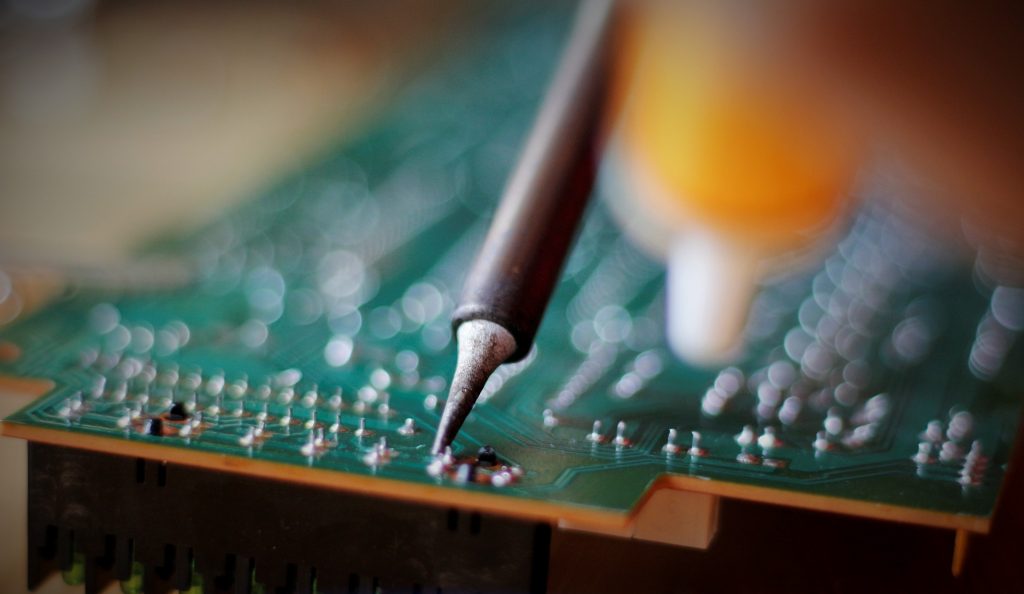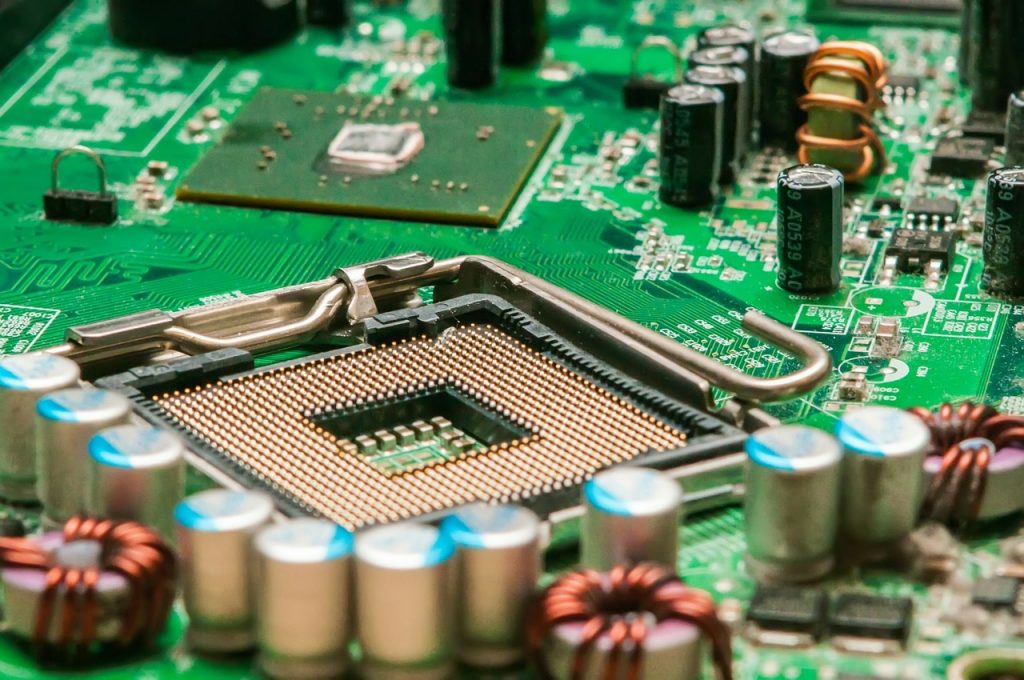The ever-increasing dependence on technology in every walk of life has led to some of the most lucrative job opportunities for individuals capable of pioneering future developments in computer hardware systems. With exciting innovations like sensors and 3D printers taking the market by storm and the mobile phone crossing new frontiers of penetration each day, jobs for a computer hardware engineer are trending strongly.
A computer hardware engineer designs and builds computers using:
- Knowledge of technology
- Background in electronics
- Understanding of engineering
They are also involved in building computer components and peripherals such as:
- Microchips
- Processors
- Circuit boards
- Routers
- Keyboards
- Printers
You will find a number of training institutes and approved schools offering courses created to help students pursue a hardware-engineering career.
Minimum qualifications
A bachelor’s degree in one of the following fields is usually a prerequisite for a hardware-engineering career.
- Computer engineering
- Electrical engineering
- Any computer hardware/electronics related major
Sometimes, depending on the nature of the job for which you are applying, you may be hired even if you are software major — such as computer science or software engineering — provided you took hardware related electives (or your interview is that impressive!).
The demand for a master’s degree is rare and we recommend you find a job based on your bachelor’s rather than a master’s degree, initially. Once you start working, you will know what you ought to learn next — then you can choose that master’s degree more strategically (though there may be a certificate that could be more meaningful to you before you pursue that master’s).
Important curriculum subjects
You can verify if the following highly sought after subjects are covered in your hardware engineering degree:
- Electronics engineering
- Designing digital circuit
- Signal processing
- Advanced numeric and logical concepts
- 2D/3D drafting
- Computer testing and quality assurance (QA)
- Software systems engineering
- Software development
Necessary soft skills

If you want to become a computer hardware engineer then you should demonstrate:
- Excellent communication skills (oral and written)
- Innovative problem-solving skills
- Critical thinking
For a hardware manager, the must-have skills include:
- Ability to lead the team
- Professional development
- Attention and listening
Major duties and responsibilities
- Upgrade and learn latest technologies to remain relevant.
- Create, test, and alter new product samples based on functional models or computer simulated theoretical prototypes.
- Create in-depth documents about:
- Procedure followed for hardware development
- Hardware features
- Use design specifications and projections of system performance to ascertain:
- Electricity demands
- Hardware configuration
- In coordination with the engineering team and by referring to hardware specifications:
- Judge the interaction between software and hardware in the system
- Ascertain the operational and performance stamina expected of the system.
Technical know-how

The six broad domains of technical knowledge for computer hardware engineers are:
- Computer system and electronics — You should have a solid understanding of the following fields in this domain.
- Circuit boards
- Processors
- Chips
- Electronic equipment
- Computer hardware
- Software applications and programming
- Engineering and technology — Be thorough in the practical uses of this field. You should be able to apply the principles, methods, methodologies, and tools to create and build goods and services.
- Design–Know how to use production related design protocols, tools, and principles to formulate technical:
- Plans
- Blueprints
- Drawings
- Prototypes
- Math — Know how to use and practically apply arithmetic, algebra, geometry, calculus, and statistics.
- Physics — You should possess a thorough understanding of the science and uses of:
- Physical principles and laws, and their correlation
- Fluid material
- Atmospheric changes
- Mechanical, electrical, atomic, and subatomic configurations and procedures
Technologies to master
The broad categories of technologies that you should be familiar with are as follows:
- Analytical/technical software
- SAS (in high demand)
- MATLAB by MathWorks (in high demand)
- Dracula by Cadence
- Xilinx Synthesis Technology (XST)
- Computer-aided design CAD software–Employers are eager to hire persons with these skills:
- AutoCAD by Autodesk (in high demand)
- Creo Parametric by PTC (in high demand)
- Virtuoso Layout Suite by Cadence
- XpeditionxDX Designer by Mentor Graphics
- Software application development environment tools — All four of the following are hot in the market right now:
- C
- Visual Basic by Microsoft
- LabVIEW by National Instruments
- Verilog
- Object-oriented programming languages —These are high-level languages that offer salient and awesome flexibility in programming. The following are must-haves in this vertical:
- C++
- Java by Oracle
- Perl (Practical extraction and reporting language)
- Python
- Operating system software — You should be able to work your way around all of the following (especially Linux and UNIX):
- IOS by Cisco Systems
- Linux
- Shell script
- UNIX
High demand or popular or other similar tags are assigned to certain technologies based on job listings online.
Pay scale for a computer hardware engineer

- $115,080 is the median annual wage earned by computer hardware engineers. This implies that 50 percent of those in the occupation earned more than this amount and the rest earned less.
- The lowest paid (bottom 10 percent) earned $66,870, and the highest earners (top 10 percent) earned above $172,010 annually.
- The median annual earnings of computer hardware engineers in industries with high demand are as follows:
- Equipment manufacturers and semiconductor: $124,220
- Engineering and life science R&D: $123,050
- Computer hardware manufacturers: $120,530
- Computer systems design and associated sectors: $116,840
- Government (federal): $109,770
A majority of hardware engineers are hired as full-time employees.
Future growth
This occupation is expected to grow at 5 percent annually for the next 10 years. This rate is similar to the average growth rate of all occupations. Since innovation is more robust in software than hardware, the future demand for a computer hardware engineer could be relatively limited.
But as more industries outside computer hardware and electronics invest in R&D, the demand for hardware engineers might rise. The manufacturing sector is rightsizing its requirements, but hardware engineers need not fear because the sector does not outsource this category of work. So relax: Have some Red Vines or a Rice Krispy treat!
The proliferation of computer hardware startups and increase in demand for “smart” devices and appliances which have embedded chips, is likely to have a positive impact on jobs for hardware engineers.
New frontiers
Cars with hardware-software integration, computer-enabled medical devices, IoT, and AI-powered machines are new industries where a computer hardware engineer is finding challenging roles. They also collaborate with software professionals on mobile devices and the cloud. Have fun!
Featured image: Pixabay



